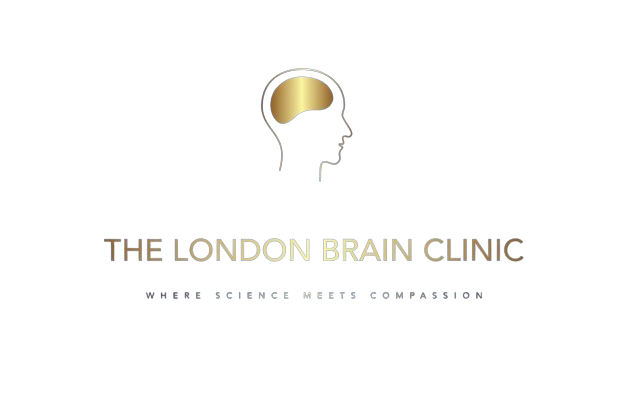Memory loss causes and treatments are becoming a growing concern, not just among older adults, but also among younger individuals. Memory loss is a common problem that can have a significant impact on a person’s quality of life. There are a number of possible causes of memory difficulties, ranging from normal age-related changes to underlying medical conditions.
- Age-related changes: As people age, it is normal for their memory to decline to some extent. This is known as age-associated memory impairment and can cause difficulty with recall, especially for new information.
- Stress and anxiety: High levels of stress and anxiety can interfere with memory, making it difficult to focus and retain new information.
- Sleep deprivation: A lack of sleep can impair memory and make it difficult to focus and retain new information.
- Substance abuse: Substance abuse, including alcohol and drug use, can interfere with memory function.
- Medical conditions: Certain medical conditions, such as depression, thyroid problems, and vitamin deficiencies, can cause memory difficulties. In addition, certain medications can have memory side effects.
- Head injury: Traumatic brain injury, including concussions, can cause memory difficulties and impair cognitive function.
- Neurological conditions: Neurodegenerative conditions, such as Alzheimer’s disease and other forms of dementia, can cause memory difficulties and lead to progressive cognitive decline.
It is important to note that memory difficulties can also be the result of a combination of factors. For example, a person with a pre-existing medical condition may experience increased memory difficulties due to the effects of stress and sleep deprivation.
If you are experiencing memory difficulties, it is important to speak with a healthcare provider to determine the underlying cause and develop an appropriate treatment plan. This may involve making lifestyle changes, such as improving sleep habits and reducing stress, or taking medications.
How can you improve your memory?
Treating memory loss requires a multi-disciplinary approach. Healthcare professionals will tailor interventions to the specific needs and circumstances of the individual. There is a growing body of evidence supporting the effectiveness of various interventions for improving memory difficulties.
Cognitive training: As previously mentioned, cognitive training can help improve memory by providing strategies for encoding and recalling information. Computer-based exercises, memory training exercises, and brain games are all forms of cognitive training that can improve memory (Gates et al., 2011). Reading books can be an effective way to prevent memory loss, as it stimulates the brain and keeps the mind active.
Physical exercise: Regular physical exercise has a positive impact on memory, particularly in older adults. Exercise increases blood flow to the brain, which can help improve cognitive function and memory (Hötting et al., 2013).
Healthy diet: A healthy diet rich in fruits, vegetables, and omega-3 fatty acids are beneficial for cognitive function and memory. Eating a balanced diet can also help maintain a healthy weight, which can reduce the risk of developing medical conditions that can impair memory (Small et al., 2006).
Good sleep habits: Getting adequate, quality sleep is important for maintaining good cognitive function, including memory. Chronic sleep deprivation has been shown to impair memory and cognitive function, so it is important to get 7-9 hours of sleep per night (Potkin et al 2012).
Stress management: High levels of stress and anxiety can impair memory, so it is important to manage stress levels. This may involve practicing relaxation techniques, such as deep breathing and meditation, as well as engaging in activities that promote overall well-being, such as exercise and spending time with friends and family.
Medications: Certain medications, such as cholinesterase inhibitors and memantine, have been approved by the FDA for the treatment of memory difficulties associated with Alzheimer’s disease and other forms of dementia.
Psychotherapy: Psychotherapy, particularly cognitive behavioral therapy, can be effective in managing stress and anxiety, which can impair memory.
It is important to note that not all interventions will be effective for all individuals. The specific intervention or combination of interventions that are most beneficial will depend on the individual and the specific type of memory difficulty they are experiencing.
In conclusion, there are a number of evidence-based interventions that can be effective in improving memory loss. Some examples are cognitive training, physical exercise, a healthy diet, good sleep habits, stress management, medications, and psychotherapy. Understanding the causes of memory loss and seeking proper treatment can help improve memory function and overall quality of life. It is important to work with a healthcare provider to determine the most appropriate intervention or combination of interventions for the individual and their specific needs. A comprehensive neuropsychological assessment is often the first vital step in understanding the causes of memory loss and guiding the treatment.
References:
Gates, Nicola J., et al. “Cognitive and memory training in adults at risk of dementia: a systematic review.” BMC geriatrics 11.1 (2011): 1-14.
Hötting, Kirsten, and Brigitte Röder. “Beneficial effects of physical exercise on neuroplasticity and cognition.” Neuroscience & Biobehavioral Reviews 37.9 (2013): 2243-2257.
Small, Gary W., et al. “Effects of a 14-day healthy longevity lifestyle program on cognition and brain function.” The American journal of geriatric psychiatry 14.6 (2006): 538-545.
Potkin, Katya Trudeau, and William E. Bunney Jr. “Sleep improves memory: the effect of sleep on long term memory in early adolescence.” (2012): e42191.

